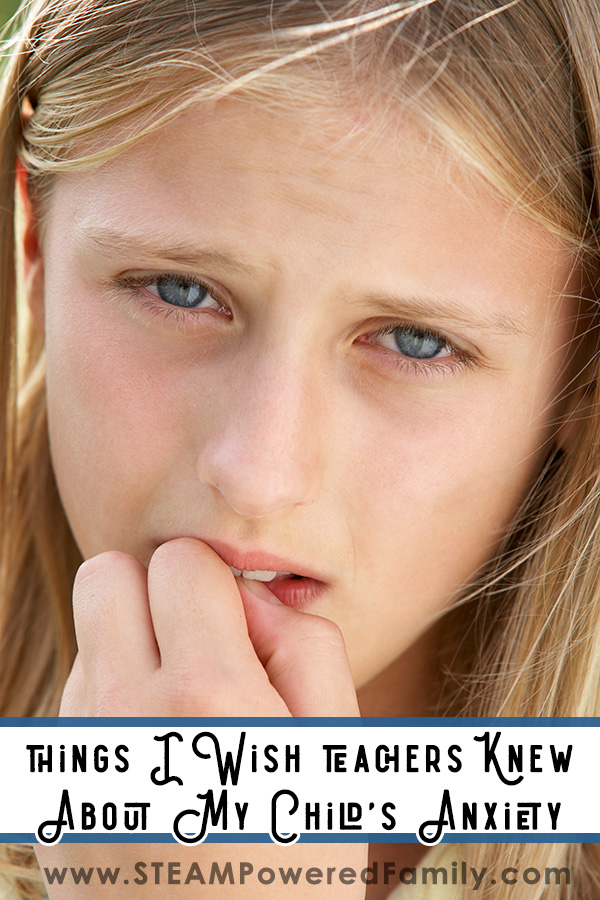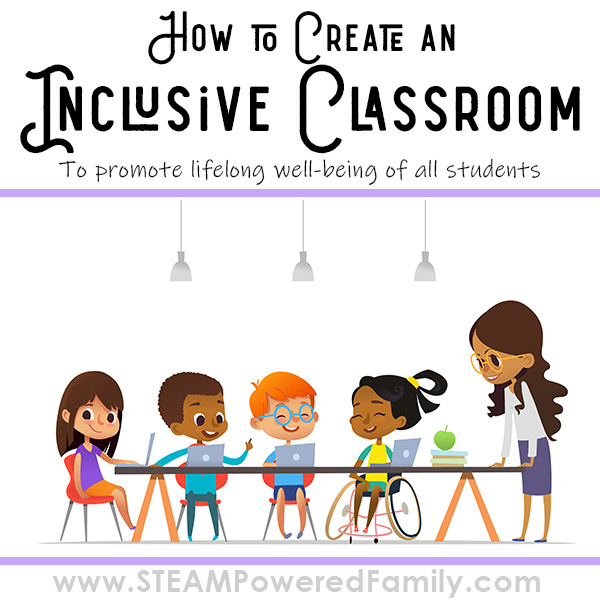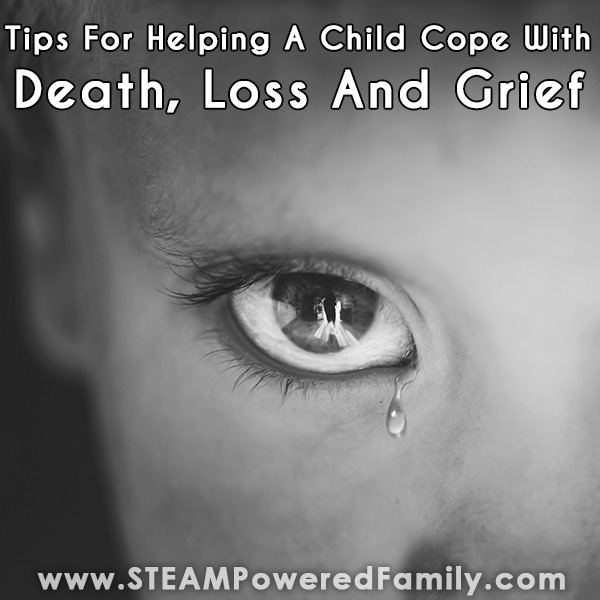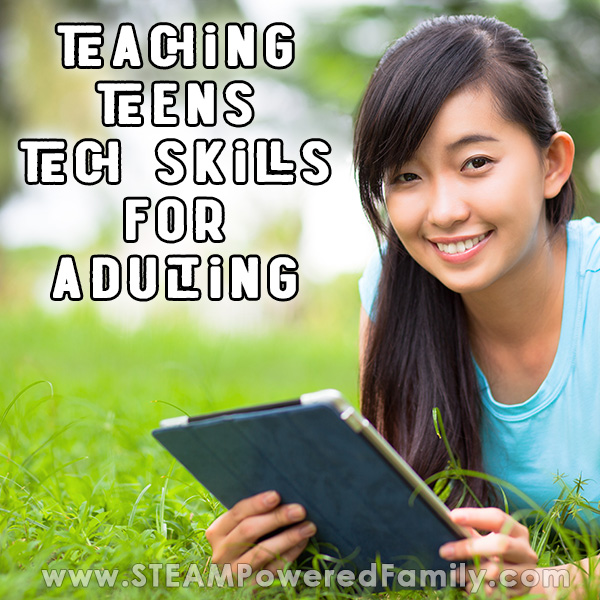5 Things I Wish Teachers Knew About My Child’s Anxiety
Childhood anxiety is a tricky issue. Many parents and teachers come to anxiety with certain preconceived notions and beliefs. Sadly, in many cases these are wrong. It’s also interesting to note that anxiety is on the rise in children. In fact, one of the most common reasons I hear for families pulling from school and starting to homeschool is anxiety. That’s our story with schools and childhood anxiety. We never set out to homeschool our children, yet after 4 years we found ourselves with no other options. Here are 5 things I wish teachers knew about my child’s anxiety.
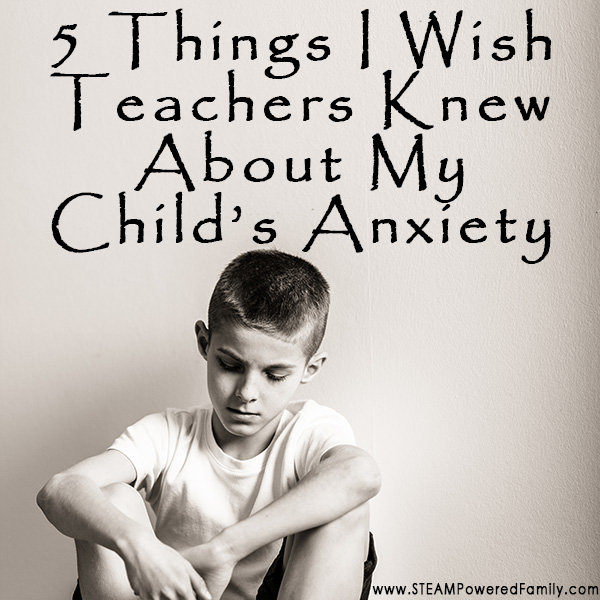
Disclaimer: This article may contain commission or affiliate links. As an Amazon Influencer I earn from qualifying purchases.
Not seeing our videos? Turn off any adblockers to ensure our video feed can be seen. Or visit our YouTube channel to see if the video has been uploaded there. We are slowly uploading our archives. Thanks!
Anxiety wears many masks
1 – Anxiety doesn’t look the same in every kid. Some children will become withdrawn and quiet, but others lash out, become argumentative and may even become aggressive. Others may become hyperactive and distracted. While another child may start to harm themselves or enter Fight/Flight/Freeze. And some kids will show a combination of these traits.
Anxiety can present in so many different ways. It can be hard to figure out what is causing the behaviours, but until the root cause is addressed, the behaviours will continue.
Finding the words can be hard
2 – Children may not have the words to express what they are feeling or be able to tell you they are anxious. It’s up to us as the adults to work together, be detectives. To listen to what the child is saying, to pay attention to their behaviours and reactions. We need to talk and compare notes, then develop approaches to address the anxiety as a team.
One of the most common things kids will say is that they have a tummy ache or head ache or are not feeling well in some way. They can’t find the words to identify the anxiety, so they instead share what it is doing to their bodies.
A Need for Control
3 – When my child is anxious he craves control over the environment or their body. Anxiety often feels like you are losing control. This causes children to do what they can to feel like they have some control. They may do this by refusing to do certain things, becoming disruptive, arguing or being manipulative, self harming or becoming distracted and busy. This can be extremely hard to manage, but until a child feels more centered and under control they can’t learn.
Not all calming techniques work
4 – Calming an anxious child may involve different techniques for different children, but even the same child may require different tools on different days. One technique will not work for all. Working together we can develop a toolkit of approaches to help in many different circumstances.
Be their Rock when the waves come
5 – One of the ways you can help my child with their anxiety is by being present for him. I know how hard this can be. There are so many students, so many needs, but my child needs to know they are seen, they are accepted, they are recognized. A smile, saying hello, chatting about what he loves, showing an interest in him, is important for him to feel safe. He needs to know he matters and that we are all here for him. He’s not ready to be alone facing the world. We need to let him know we have his back.
Anxiety can hit in waves, especially in children. Try to be a rock and source of stability when it hits.
Kids can be great at hiding anxiety… until they are safe
One more… #6 – You may not see it. My son would store up all of his feelings, hiding and camouflaging them in the school environment, then it would be unleashed like a tsunami after he returned home. As young as grade 1 he struggled with insomnia, panic attacks, self harm, lack of self-regulation and attention issues. Yet, when I approached the school they said they saw nothing, therefore could do nothing.
After 4 years in the school system, trying desperately to make it work for my child, we finally relented and had to pull him to start homeschooling. We are very reluctant homeschoolers. I would love to have my child in school, but it needs to be a safe and responsive environment for him.
I know there are amazing teachers and amazing schools out there. We’ve had the pleasure of working with some of these dedicated and knowledgeable programs and educators, but sadly not all are aware or sensitive to the needs of children struggling with anxiety. And in some cases, educators caused even more damage to my son due to their lack of understanding or recognition of the signs. They undermined his feelings of safety, leading to the development of severe anxiety and OCD.
Both of which almost disappeared within months of leaving the school system.
This is just our experience with childhood anxiety and what I wish teachers knew about it and how they could have helped our family. But I know I’m not alone. Many other homeschooling families have left the school system for similar reasons. Feel free to share your comments below. The more stories and awareness we can spread on this issue, the more children we can help. Together we can make a difference.
Some books we like on Childhood Anxiety
A fantastic video on how our educational system could change for the better.
